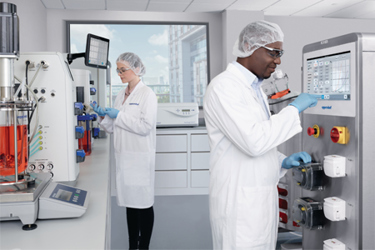Are Bioreactors The New 'Fish Tanks'?
By Marcelo Szpilman, Executive Director, Sustineri Piscis

Concerns linked to the sustainability and adequacy of traditional farming and fishing practices in addressing global food security are both persistent and growing – the agriculture and meat industries have, for years, faced significant challenges when it comes to the world’s growing demand for food. While many of these challenges have been more extensively explored in livestock, the issues surrounding fish meat production are equally fraught, and a burgeoning global population, combined with ecological and safety concerns, is fueling a transformation in how these food sources are produced.
Cellular aquaculture, a novel approach to seafood production wherein cell culture technologies are used to grow quality fish, is poised to offer a more accessible, climate-resilient alternative to conventional fish production. By exploring innovative approaches to scaling up animal cell growth in cutting-edge bioreactor systems, foodtech companies are positioning themselves to offer healthier, safer, more sustainable sources of fish for consumers.
While the benefits of pursuing cellular aquaculture are manifold, there exist several challenges to more widespread cultured fish production globally. The biggest is securing authorizations from various regulatory agencies and government authorities to construct commercial facilities; another key obstacle relates to the costs associated with procuring the highly technical equipment and inputs necessary to produce cultured meat. Surmounting these challenges will require cross-functional collaboration from foodtech companies, technology suppliers, and experts in the bioprocessing space willing to share process development milestones and solutions that address cost and access.
Get unlimited access to:
Enter your credentials below to log in. Not yet a member of Cell & Gene? Subscribe today.
